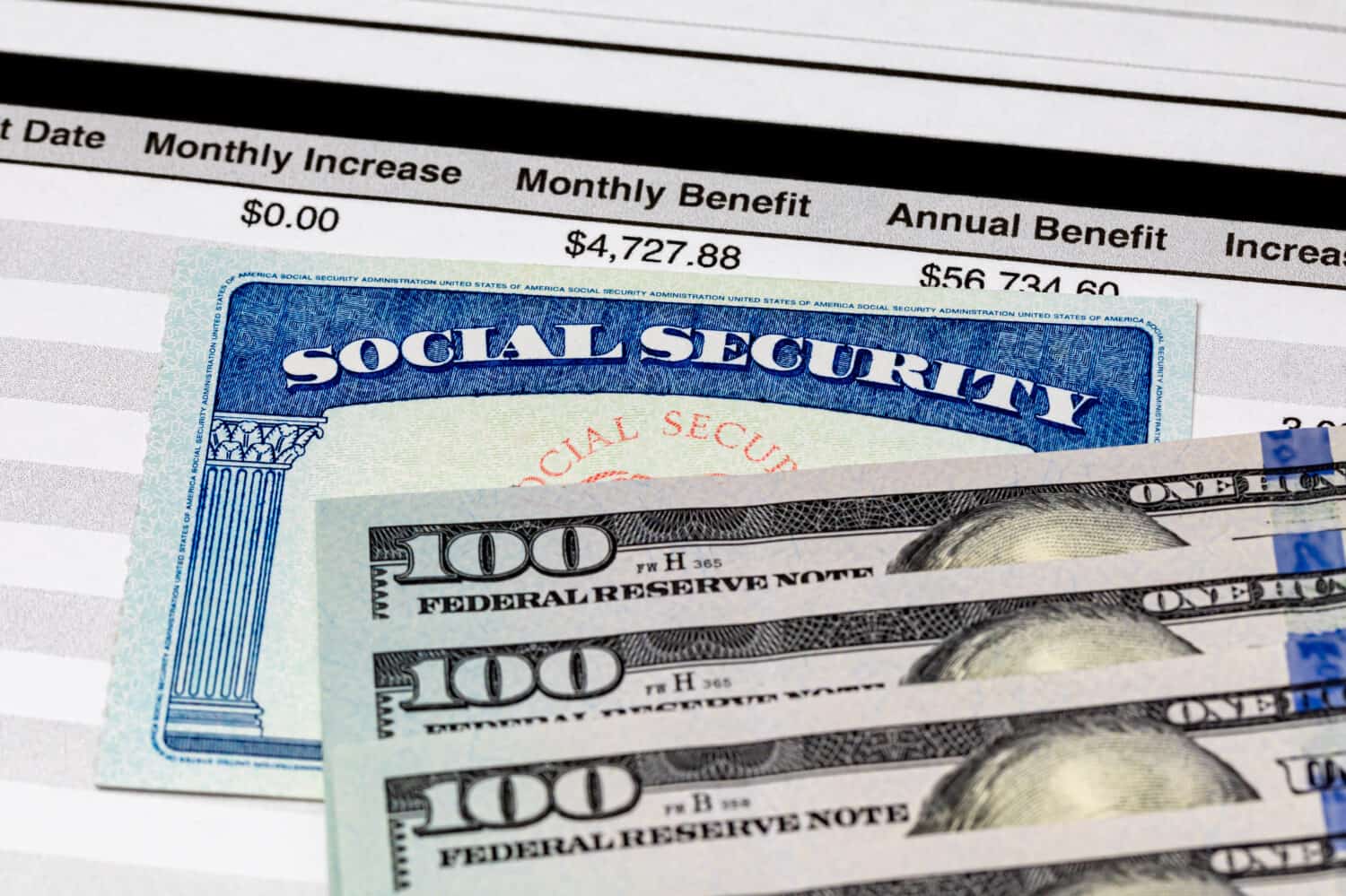Personal Finance
Eight Scary Retirement Statistics That Will Keep You Up at Night

Published:

When it comes to retirement, we want it to be as easy and as rewarding as possible.
Unfortunately, that’s not always the case.

If you think you could survive on just Social Security payments alone, think again. Right now, the average monthly benefit is around $1,700 and, in some cases, can be taxed. According to the Center on Budget and Policy Priorities, “In July 2023, 80 percent of retired workers — and even larger percentages of disabled workers and aged widows and widowers — received monthly benefits of less than $2,500.”
According to Ramsey Solutions, about 37% of Americans have more credit card debt than they have in retirement savings. If you fall into that group, you could be setting yourself up for major problems as you get set to retire. That’s nearly 124 million people.
Nearly a third of older adults who have a credit card balance say they’re carrying a balance of $10,000 or more, as noted by AARP. About 12% say they have a balance of around $20,000, which is up about 8% year over year.
Sounds crazy, right? Unfortunately, according to a U.S. Department of Labor survey, about 49% of workers have no idea what they need to live comfortably in retirement. In addition, as noted by Newsweek.com, “More than half of all Americans do not have a plan in place for their retirement, a new study has revealed. Allianz Life’s 2024 Annual Retirement Study has found that 56 percent of Americans have no solid financial plan for their post-working years.”
Unless you want to work forever, check in with a financial advisor to figure this out.

According to AARP, about 20% of adults 50 and above have no retirement savings at all. And about 61% are concerned they won’t have enough money to support them in retirement. If you fall into that category, there’s a way out. For one, calculate your expected retirement spending. Two, fund your 401(k) to the max and take advantage of employer matches. In fact, if your employer matches up to 6%, you should also invest 6%.
You can also make catch-up contributions to retirement.
For 2024, the IRS says you can contribute up to $69,000 with an additional catch-up contribution of $7,500 if you’re 50 or older.
Also, be sure to check in with a financial advisor no matter what stage of saving you’re in.
According to a Goldman Sachs survey, 62% of workers and 45% of retirees have less than $200,000 saved for retirement. With the potential for a 20+ year retirement, that’s not sufficient for a comfortable, stress-free retirement.
Since 1964, American workers over the age of 75 have quadrupled. Now, there’s a projection that those 75 and older could more than double, as noted by the Bureau of Labor Statistics. And while some choose to stay in the workforce, others are forced to work because of a lack of funds to finally stop working.
According to the National Institute on Retirement Security, “79 percent of Americans agree there indeed is a retirement crisis, up from 67 percent in 2020. More than half of Americans (55 percent) are concerned that they cannot achieve financial security in retirement.”
The average cost of a private room in a nursing home is $116,800 a year. The average cost of assisted living is $64,200 a year. Home health aides can run to $75,000+ per year. If, at some point, you or a loved one requires long-term care, healthcare costs can be draining. Also, regular insurance doesn’t cover long-term care, and unfortunately, Medicare won’t help.
In short, there are plenty of nightmare stories. However, most can be avoided by planning ahead and speaking with a financial advisor who can best advise you on what to do and what not to do if your goal is to retire comfortably.
Retirement can be daunting, but it doesn’t need to be.
Imagine having an expert in your corner to help you with your financial goals. Someone to help you determine if you’re ahead, behind, or right on track. With SmartAsset, that’s not just a dream—it’s reality. This free tool connects you with pre-screened financial advisors who work in your best interests. It’s quick, it’s easy, so take the leap today and start planning smarter!
Don’t waste another minute; get started right here and help your retirement dreams become a retirement reality.
Thank you for reading! Have some feedback for us?
Contact the 24/7 Wall St. editorial team.